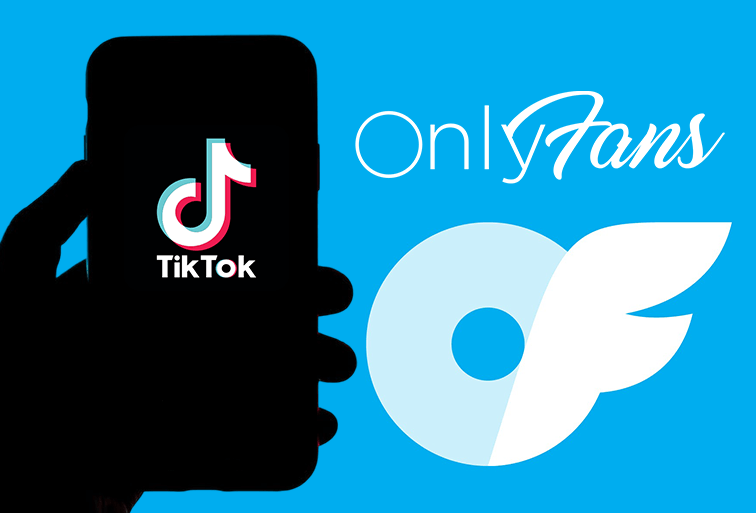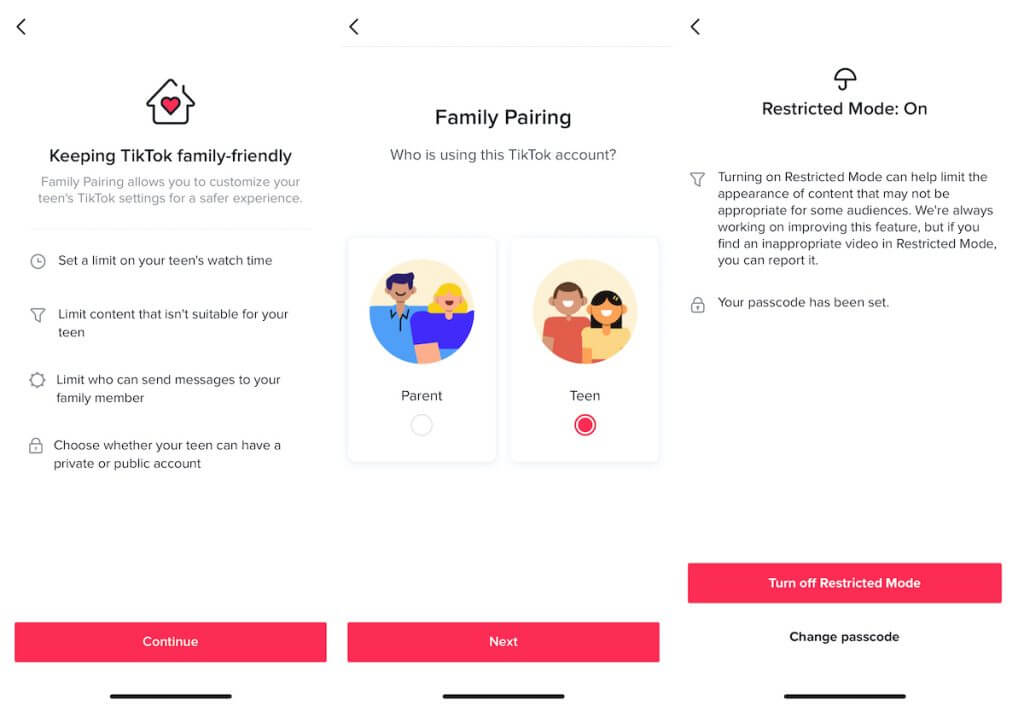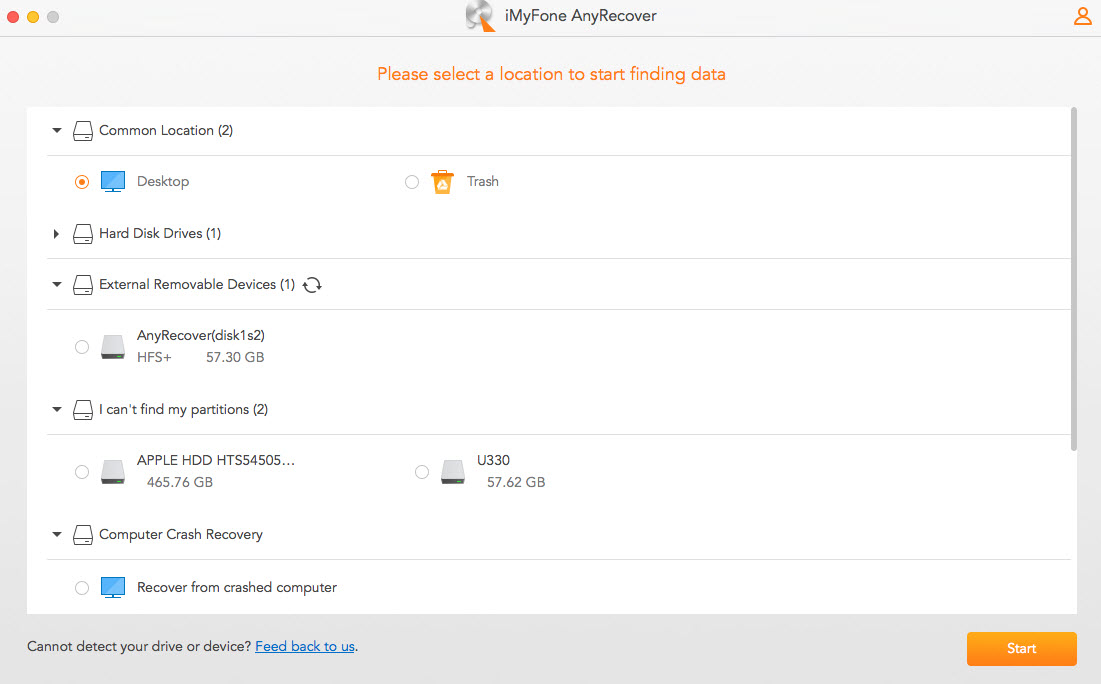ClevGuard Support: Monitor Devices with Others' Permission.
In social media, staying on top of new platforms can challenge parents. New apps emerge yearly, making tracking our children's online activities difficult. One platform causing concern among parents is OnlyFans and its relationship with TikTok.
Initially, TikTok was an entertaining video app that aimed to support clean content. But the rise of platforms like OnlyFans has made it increasingly challenging to maintain a safe environment. In this article, we will explore the relationship between TikTok and OnlyFans, and discuss how parents can ensure their children's safety while using TikTok.
In this article:
Part 1. What Does OnlyFans Mean on TikTok?
1. What is OnlyFans?
OnlyFans is a social media platform that was launched in 2016. The platform currently boasts 1.5 million content creators, who can post various types of content, often in the adult entertainment industry, and receive direct payments from their fans. However, since the sensitive content of OnlyFans, more and more people are paying attention to this platform, fearing that it will negatively impact other teenagers.

2. The Rise of OnlyFans on TikTok (TikTok vs OnlyFans)
OnlyFans has gained popularity among TikTok users, leading to a significant increase in its notoriety. In early 2020, OnlyFans witnessed a 75% surge in its user base. Many TikTokers have started promoting their OnlyFans accounts on the platform, further contributing to its visibility.
The more famous a TikToker becomes, the more fans they attract to their OnlyFans page. This trend has created a symbiotic relationship between TikTok and OnlyFans, with TikTok acting as a marketing platform for content creators to gain followers and subscribers on OnlyFans.

3. Controversies and Concerns
The rise of OnlyFans on TikTok has raised several controversies and concerns, especially regarding the potential impact on young audiences. One of the main concerns is the presence of explicit content on OnlyFans. While the platform allows content creators to post a wide range of content, including adult content, it is crucial to acknowledge that OnlyFans requires users to be at least 18 years old. However, there have been instances where teenagers have used fake IDs to bypass the age verification process and gain access to explicit content.
OnlyFans and Inappropriate Content
The availability of explicit content on OnlyFans poses a significant risk to young audiences. Teenagers not only access adult content on the platform but also create precise profiles of themselves. The allure of making money through OnlyFans can entice many teenagers, especially those facing financial difficulties. The BBC documentary highlighted the case of a 17-year-old girl from Scotland who successfully posted explicit content on OnlyFans for about a year. This example illustrates the dangers of young individuals engaging in adult content creation and consumption.

Online Predators and Harassment
Another concern related to the promotion of OnlyFans on TikTok is the potential for online predators and harassment. Content creators on OnlyFans have reported receiving death threats and facing abusive behavior from fans. Online predators can search for public and private information for influencers, leading to potential blackmail and mental harassment. This aspect highlights the need for increased online safety measures and parental control to protect young TikTok users from such threats.
Unhealthy Obsession and Emotional Attachment
Even if teenagers are not accessing or creating explicit content on OnlyFans, they can develop an unhealthy obsession with their favorite influencers. It is important to remember that for influencers, OnlyFans is primarily a means of making money, and they may not form genuine emotional attachments to their fans. However, adolescents can develop a passionate liking and devotion to these influencers, leading to disappointment and emotional distress when they realize their feelings are not reciprocated.
Piracy and Leaked Content
One of the significant risks associated with using OnlyFans is the potential for piracy and leaked content. Despite efforts to protect the privacy of content creators, instances have been reported where influencers' content is circulated and even sold on pornographic websites. This highlights the need for robust security measures and caution when sharing sensitive content on platforms like OnlyFans.
Part 2. How to Protect Children From Online Sexing?
Given the concerns surrounding the promotion of OnlyFans on TikTok, it is crucial for parents to take action and establish a safe online environment for their children. Here are some practical steps parents can take to protect their children while using TikTok:
1Have Open Communication with Kids
Open and honest communication is vital to protecting children from the dangers of the internet. Parents should educate their children about the potential risks they may encounter online, including explicit content and online predators. By equipping children with knowledge and teaching them how to handle such situations, parents can empower them to make informed decisions and navigate the online world safely.

2Use Professional Parental Control Apps
In addition to staying informed about the latest cybersecurity measures, parents can use parental control apps to monitor their children's activities on mobile phones. One highly recommended parental control app is KidsGuard. It can help you protect your kids without hassle.
Watch the video below to learn more about KidsGuard!
- Block inappropriate websites and apps like OnlyFans to create a safe online environment.
- You can set screen time limits to avoid excessive addiction in children.
- Track children's location in real-time. If they enter or leave the geofence you set, you'll then receive instant alerts.
- Create detailed reports of your child's online activities.
- The installation steps are super easy and user-friendly.
Outstanding Features of KidsGuard
3Create and Monitor Accounts
To ensure a safe online experience, parents can create TikTok accounts for their children and share the account credentials with them. This allows parents to monitor their children's browsing history and the content they access on TikTok.
TikTok also offers parental control features like Family Pairing and Restricted Mode to filter out potentially inappropriate content. However, be aware that no filter is perfect, so additional measures are needed.

Conclusion
The rise of OnlyFans on TikTok has sparked concerns among parents regarding the potential exposure of young audiences to explicit content and online threats. Parents must stay informed about the platforms their children use and take proactive steps to establish a safe online environment. With the right tools (like KidsGuard) and guidance, parents can navigate the evolving digital landscape and promote a positive and safe online experience for their children.







 Store
Store
